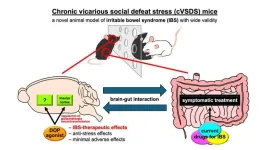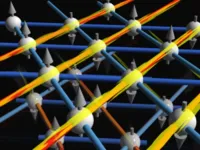The results of this phase 1 trial were reported today in Nature.
“We’re very excited about these results, which show such a positive response in all nine patients with kidney cancer,” says co-senior author and co-principal investigator Toni Choueiri, MD, Director of the Lank Center for Genitourinary Cancer at Dana-Farber.
“This study was the result of a close partnership between our NeoVax team, our colleagues at the Broad Institute of MIT and Harvard, and our colleagues at the Lank Center for Genitourinary Cancer at Dana-Farber,” says co-senior author Catherine Wu, MD, chief of the Division of Stem Cell Transplantation and Cellular Therapies at Dana-Farber and an institute member at Broad, who developed the NeoVax vaccine technology used to create the personalized cancer vaccines for this trial. “We are thrilled to report these results.”
Patrick Ott, MD, PhD, director of the Center for Cancer Vaccines at Dana-Farber, and Derin Keskin, PhD, immunologist at the Center for Cancer Vaccines at Dana-Farber, are also co-senior authors. David A. Braun, MD, PhD, formerly of Dana-Farber and Harvard Medical School, and now a medical oncologist and physician-scientist at Yale Cancer Center and Yale School of Medicine is first author.
Standard treatment for patients with stage III or IV clear cell renal cell carcinoma is surgery to remove the tumor. Surgery can be followed by immunotherapy with pembrolizumab, an immune checkpoint inhibitor. Pembrolizumab induces an immune response that reduces the risk of the cancer coming back. However, about two-thirds of patients can still recur and have limited treatment options.
“Patients with stage III or IV kidney cancer are at high risk of recurrence,” says Choueiri. “The tools we have to lower that risk are not perfect and we are relentlessly looking for more.”
In this investigator-initiated trial, Choueiri and Braun treated nine patients with stage III or IV clear cell renal cell carcinoma with a personalized cancer vaccine after surgery. Five patients also received ipilimumab with the vaccine.
The vaccines are personalized to recognize the patient’s individual cancer using the tumor tissue removed during surgery as a guide. The team extracts molecular features from the tumor cells that differentiate them from normal cells. These features, called neoantigens, are tiny fragments of mutant proteins that exist in the cancer but not in any other cells in the body.
The team uses predictive algorithms to determine which of these neoantigens to include in the vaccine based on their likelihood to induce an immune response. The vaccine is then manufactured and administered to the patient in a series of initial doses followed by two boosters.
“This approach is truly distinct from vaccine attempts in kidney cancer” says Braun. “We pick targets that are unique to the cancer and different from any normal part of the body, so the immune system can be effectively “steered” towards the cancer in a very specific way. We learned which specific targets in the cancer are most susceptible to immune attack and demonstrated that this approach can generate long-lasting immune responses, directing the immune system to recognize cancer. We believe this work can form a foundation for the development of neoantigen vaccines in kidney cancer.”
While some patients experienced local reactions at the vaccine injection site, and some experienced flu-like symptoms, no higher-grade side effects were reported.
“The neoantigens targeted by this vaccine help steer immune responses towards cancer cells, with the goal to improve on-target efficacy and reduce off-target immune toxicity,” says Choueiri.
When the team initiated this study eight years ago, it wasn’t clear whether this approach could work in kidney cancer. It had been shown to have the potential to be effective in melanoma, which has many more mutations and therefore many possible neoantigens.
But kidney cancer is a disease with fewer mutations, and therefore fewer targets to manufacture the vaccine. It was important for the investigators to learn as much as possible from this early phase study about how the vaccine influences an immune response to the tumor.
Through a series of analyses, the team found that the vaccine induced an immune response within three weeks, the number of vaccine-induced T cells increased by a mean of 166-fold, and these T cells remained in the body at high levels for up to three years. In vitro studies also showed that the vaccine-induced T cells were active against the patient’s own tumor cells.
“We observed a rapid, substantial, and durable expansion of new T cell clones related to the vaccine,” says Ott. “These results support the feasibility of creating a highly immunogenic personalized neoantigen vaccine in a lower mutation burden tumor and are encouraging, though larger scale studies will be required to fully understand the clinical efficacy of this approach.”
Clinical trials with larger number of patients are needed to confirm the vaccine's effectiveness and explore its full potential. An ongoing multicenter international randomized study uses a similar neoantigen-targeting personalized cancer vaccine will be administered in combination with immunotherapy pembrolizumab (NCT06307431). Choueiri serves as the co-chair of its Scientific Advisory Committee.
Funding: Gateway for Cancer Research, US Department of Defense, Louis Goodman and Alfred Gilman Yale Scholar Fund, Yale Cancer Center, Dana-Farber/Harvard Cancer Center, Harvard Medical School, Trust Family Foundation, Michael Brigham, Pan-Mass Challenge, Hinda L. and Arthur Marcus Foundation, The Loker Pinard Fund for Kidney Cancer Research at Dana-Farber Cancer Institute, National Institutes of Health, Conquer Cancer Foundation/Sontag Foundation.
About Dana-Farber Cancer Institute
Dana-Farber Cancer Institute is one of the world’s leading centers of cancer research and treatment. Dana-Farber’s mission is to reduce the burden of cancer through scientific inquiry, clinical care, education, community engagement, and advocacy. We provide the latest treatments in cancer for adults through Dana-Farber Brigham Cancer Center and for children through Dana-Farber/Boston Children’s Cancer and Blood Disorders Center. Dana-Farber is the only hospital nationwide with a top 5 U.S. News & World Report Best Cancer Hospital ranking in both adult and pediatric care.
As a global leader in oncology, Dana-Farber is dedicated to a unique and equal balance between cancer research and care, translating the results of discovery into new treatments for patients locally and around the world, offering more than 1,100 clinical trials.
###
END







